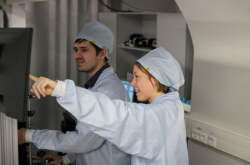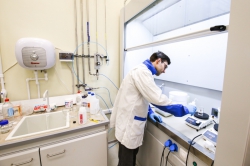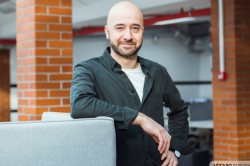Yaroslava Andreeva, PhD student at the Faculty of Laser Photonics and Optoelectronics
I wasn’t planning to apply, everything happened on the spur of the moment. In the course of several hours, I received not one but two offers: to do an internship and to apply for the presidential scholarship. I thought, why not? I had no experience of participating in contents like this one, and Olga Ovsyannikova, head of the ITMO Academic Mobility Support Office, really helped me navigate this process. I was, of course, very pleased by the result, which also inspired me to work even harder, because now I have to wrap up all of my experiments before I leave.
My work revolves around the development of functional coatings based on thin composite films. The films themselves are based on a transparent semiconductor or dielectric into which we incorporate metal nanoparticles. Laser management of the size and position of such particles allows us to precisely control the properties of the material. In the future, this can be used to create ultra-thin optical elements and components for photonic devices.
I will do my exchange at Hubert Curien Laboratory of the French National Center for Scientific Research in the city of Saint-Etienne. The topic of my work arose from the joint project under the Russian-French Hubert Curien Partnership Program “Kolmogorov”, that’s why conducting an internship there was a logical next step. Our colleagues over there have a strong experimental infrastructure and experience of carrying out interdisciplinary research in the field of the creation of thin composite films-cased functional coatings. Apart from that, it is for some time now that I have been collaborating with professor Tatyana Itina, which over the course of several years was an ITMO invited professor and will now become my scientific advisor in France.
Anna Volokitina, PhD student at Faculty of Photonics and Optical Information
My scientific focus is the study of solid-state materials, such as oxide crystals, ceramics and glass ceramics, which are activated by rare-earth ions. I research the relationship between the composition, structure, and optical properties of these materials. These elements can serve as the basis for the creation of various phosphors, development of laser elements, and laser generation.
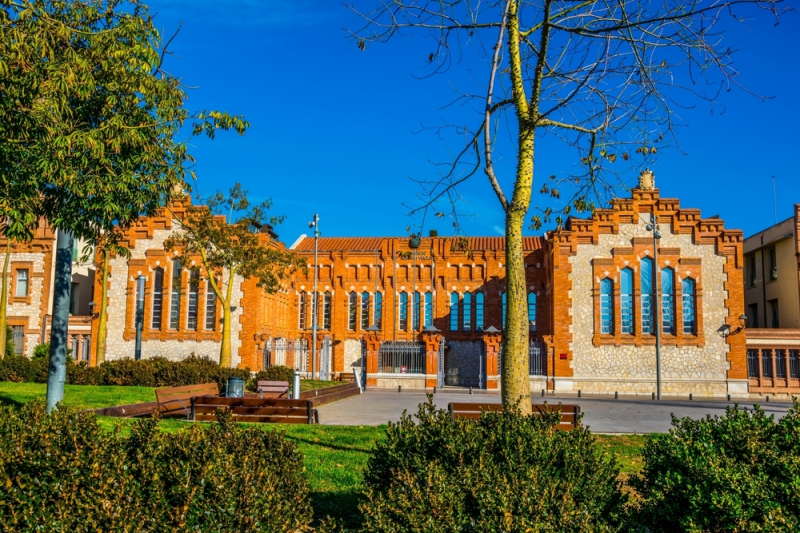
Right now, my work is closely related to the development of new laser materials. I study spectroscopic properties of the new complex low-symmetry crystals that are being synthesized by my colleagues in other research centers. It is in one of these centers, located in Tarragona, Spain (Universitat Rovira i Virgili (URV)), that I will conduct my six-month research internship. My colleagues, in particular, my scientific advisor Pavel Loyko, have already managed to obtain laser generation on some crystals the spectral properties of which I have been studying. I’m going to continue to study the lasing-generation properties of crystals and, using the hi-tech equipment available at URV, will not only investigate the spectral-luminescent properties but also conduct experiments to obtain laser generation.
I’m really glad to have made it to the list of the scholarship’s winners. It’s great to receive financial support to help me fulfill my potential. And I’m very grateful to my friends and colleagues that kept their fingers crossed for me and believed that I could win this contest.
Georgiy Zograf, PhD student at the Faculty of Physics and Engineering
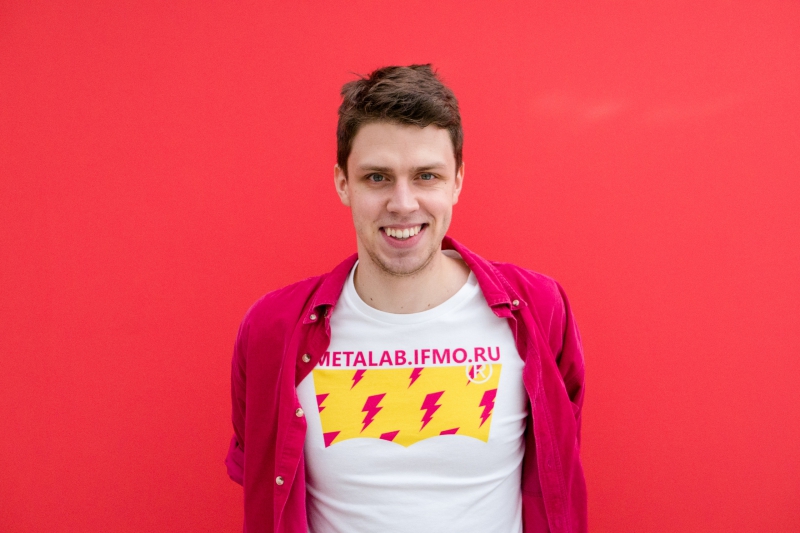
I study the properties of resonant nanoantennas and nanostructures based on a new class of materials, perovskites. These materials have attracted the attention of the scientific community in the last few years due to their outstanding properties, which include high quantum yield (the property of emitting materials) and colossal opportunities for rebuilding their radiation spectra in the entire visible wavelength region. Moreover, these materials are also promising for the tasks of converting the frequencies of incident radiation. Such nonlinear effects are especially interesting for the tasks of staining and visualizing effects on the nanoscale, creating lasers, and transmitting information.
For my exchange, I chose the Friedrich Schiller University of Jena, Germany. Historically, Jena was the center of German high-precision optics – it was here that the Carl Zeiss company was located, and after the unification of Germany, the University of Jena became one of the world leaders in the field of nanophotonics. Thanks to a number of scientific conferences, particularly the METANANO conference which is organized annually by the Faculty of Physics and Engineering, I managed to form a first-hand acquaintance with my host university, and we found promising areas for joint research. It was important for me to understand how interested they were in me. There have been cases where scholarship holders came and “read articles” for half a year and their host institutions didn’t particularly show interest in them as specialists.
This is the first time I’ve won a competition that supports long-term internships; what was holding me back was my fear of all the red tape involved. That said, I had received travel grants to attend international conferences, as well as various governmental scholarships, before. I’m really grateful for the help of Olga Ovsyannikova and my colleague Ekaterina Tiguntseva, who also received the scholarship. Without their support, I wouldn’t have put up with such an enormous amount of paperwork. Right now I feel relieved and at peace that this several-months-long story is over. And of course, I’m very happy to have this opportunity to work abroad and make use of all the prospects for conducting research at the highest level.
Ksenia Oreshkina, Master’s student at the Faculty of Photonics and Optical Information
I wasn’t expecting to win, because right after I’d submitted my application for the presidential scholarship I left for a research internship at Ulm University (Germany), and all my thoughts were focused on obtaining new experience in the field of photonics. The news that I won came as a very pleasant surprise.
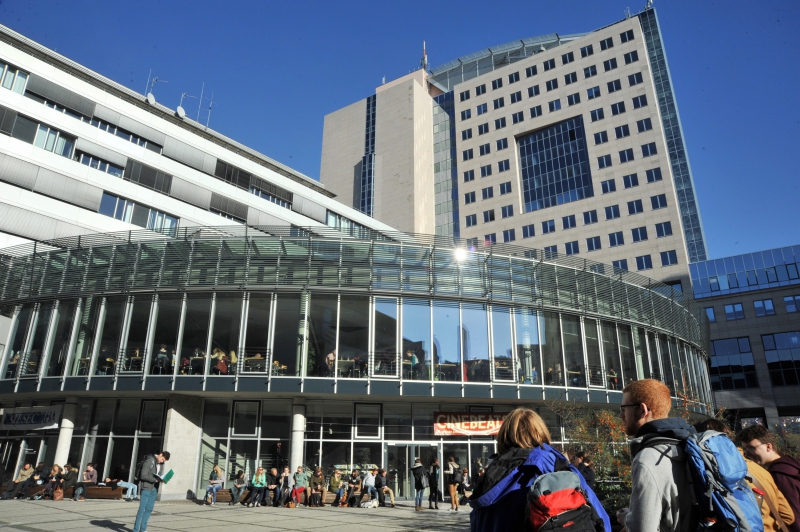
More and more scientists around the world are starting to pay special attention to the study of halide perovskite crystals, and the creation of nanostructures from this type of material is an topical task for many scientific centers’ laboratories. Such interest in perovskite crystals is prompted by their great practical importance for many applications of photonics, optoelectronics, and solar energy. I got interested in this topic because the scientific results of such studies can be used in practice.
Since 2018, I have been a student of ITMO University International Master’s program “Advanced Materials and Technologies of Photonics”, implemented jointly with the University of Eastern Finland. The program provides for the opportunity to do one of the two years of studies at the University of Eastern Finland. One of the areas in which the University of Eastern Finland specializes in is the development of new technologies and optical materials. That’s why studying there is a great chance for me to enrich and deepen my knowledge and obtain practical skills in the field of optics and photonics.
Maxim Masyukov, Master’s student at the Faculty of Photonics and Optical Information
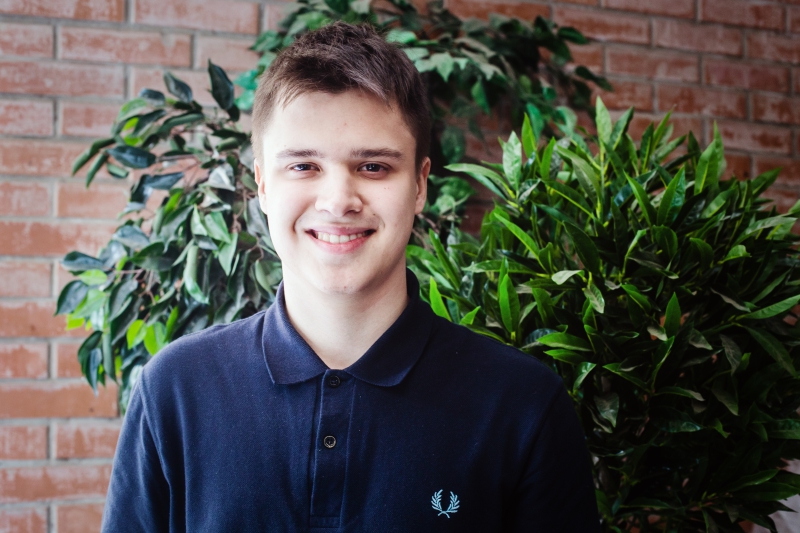
I was pleasantly surprised by my victory in the presidential contest competition. Last year, I’d already won two international scholarships which I partly spent on continuing my research and presenting its results on a number of conferences. What is more, I’ve also received several travel grants from ITMO University, but doing a research internship abroad will be a first for me.
I conduct research in the field of terahertz photonics, more precisely, terahertz meta- and nanomaterials. As of now, it is one of the fastest-growing and most promising branches of photonics. In practical terms, these studies can be applied in terahertz communications and the diagnosis of diseases, for example, in the study of the polarization characteristics of affected tissues.
As per my scientific supervisor’s advice, for my internship I applied to the University of Exeter in the UK, which has a powerful experimental base that allows for moving from theory to the production and testing of developed samples. In addition, the laboratory I work at is actively collaborating with the University of Exeter in the field of research on graphene-related topics.
Maria Mikhailenko, Master’s student at ChemBio Cluster
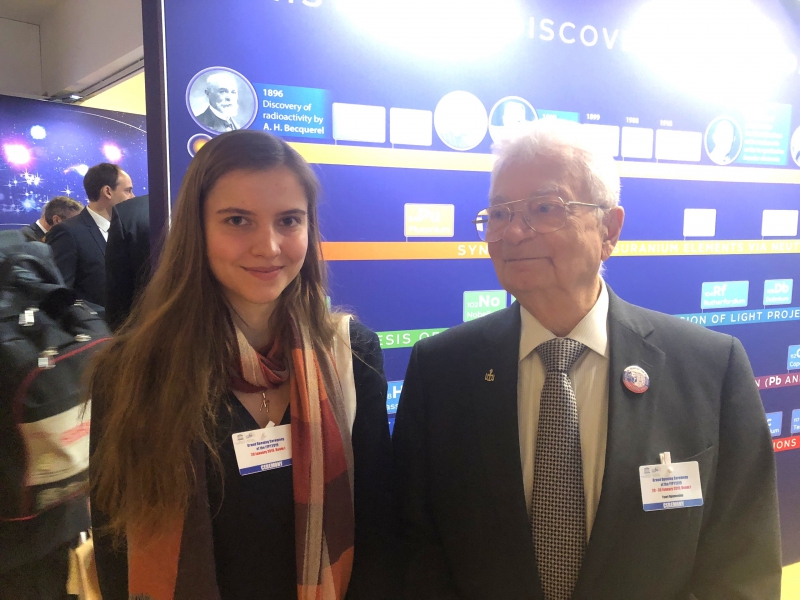
My current work is focused on theoretical modeling of functional materials in the field of green chemistry under the guidance of Evgeny Pidko. In particular, I study the process of direct and selective oxidation of methane to methanol. This is a very important task in the field of heterogeneous catalysis, solving which is key for the gas industry. Using various methods of computational chemistry, I examine metal-organic framework structures, which in this process can act as active catalysts.
I’ll use my scholarship to do an internship in the laboratory of Dr. Karsten Reuter at the Technical University of Munich (TUM). TUM is one of the best technical universities in Europe, and Prof. Reuter is known for his research in the field of functional materials modeling and heterogeneous catalysis. His work has a lot in common with what we are doing here at ITMO, and I am very glad that I can work as part of his group.
I’m not sure that I will work on exactly the same topic as I do in St. Petersburg, but it will definitely be closely associated with metal-organic clusters catalysis using transition metals. Theory-wise, the results of these studies will help to understand the limits of applicability of the computational methods we use now, and in practical terms, will pave the way for the invention of new generation catalysts.
Pavel Terekhov, PhD student at the Faculty of Physics and Engineering
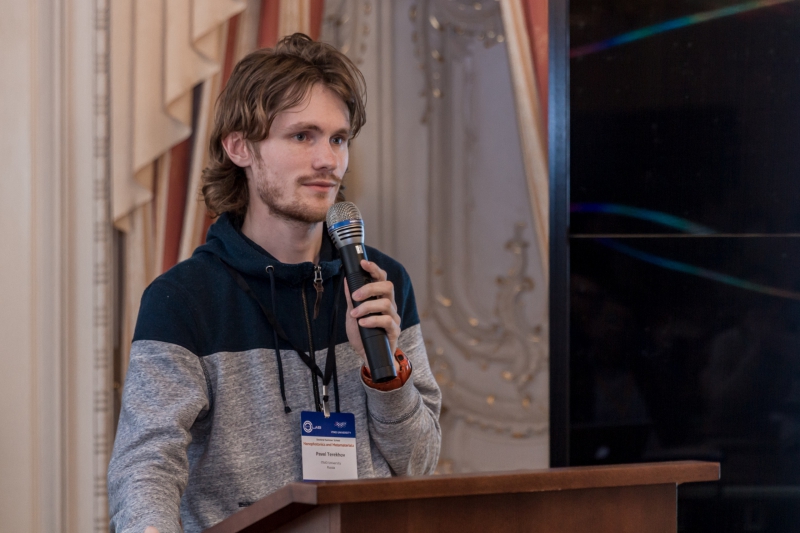
I study on a double degree program implemented by ITMO University and Ben Gurion University of the Negev, Israel. Together with my scientific advisors, I research dielectric metasurfaces and resonators, mainly by applying and developing the multipole decomposition method. We have already discovered and described several interesting effects on both theoretical and experimental levels, and also proposed a semi-analytical method for multipole analysis of metasurfaces.
Thanks to the scholarship, I will be able to conduct an internship at Purdue University, the US, on invitation by professor Alexandra Boltasseva. I’ll work as part of one of the world’s leading research groups in the field of nanophotonics, and my international colleagues and I are already discussing potential joint projects.
I’ve never won contests like this one before. Waiting for the results was a bit nerve-racking, but I knew I had a very strong application thanks to the results I’d already achieved during my PhD studies. Hence, I was expecting to win.
Tatyana Vovk, Master’s student at the Faculty of Photonics and Optical Information
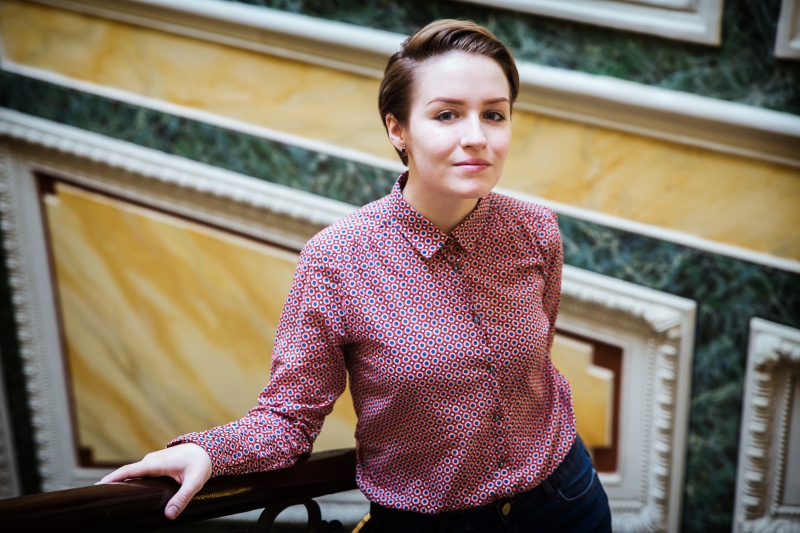
My research at ITMO University is dedicated to the laser cooling of fluorite nanocrystals doped with ytterbium and levitated in a radio frequency trap. One of the main advantages of the approach we propose is the “ultra-low” cooling temperature that reaches 10-9 Kelvin. The nanocrystals that are cooled in this way are very useful for fundamental research and low-temperature chemistry.
For two months now, I’ve been conducting an internship at the Swiss Federal Institute of Technology in Lausanne (École polytechnique fédérale de Lausanne, EPFL)’s Laboratory of Photonics and Quantum Measurements under the guidance of professor Tobias Kippenberg. As of now, I’m focusing on the modeling and production of superconducting quantum circuits that are necessary for memory in quantum computers. Very soon, I’m also to start the courses included in the exchange program I’m on. The laboratory I’m working at is one of the world’s leading centers in the field of photonics and the interaction of light and matter, and the university holds the 18th position in the QS World University Rankings. That’s why the choice was obvious to me.
Of course, I was really hoping to win the contest. The scholarship will support me during the rest of my studies in Switzerland, which is one of the world’s most expensive countries. I’ve won scholarship competitions and grants before, but the prize was never as significant. For me, this scholarship is a key to diverse and high-quality education, exciting and productive scientific research and, of course, expanding my cultural horizons as part of living in another country.
About the scholarship
Awarded on an annual basis, the Scholarship of the President of the Russian Federation is aimed at supporting the studies and internships of talented students and PhD researchers abroad. Thanks to the scholarship, young scientists working in priority scientific and technological areas can conduct a six-to-ten month internship at the world’s leading universities.
This year, the presidential scholarship was awarded to seven of ITMO University Master’s students (Tatyana Vovk, Egor Litvinov, Maxim Masyukov, Maria Mikhailenko, Mariam Muradova, Ksenia Oreshkina and Nikita Teplyakov) and ten of ITMO’s PhD researchers (Yaroslava Andreeva, Alexander Berestennikov, Anna Volokitina, Georgiy Zograf, Veronika Mazulina, Ivan Nekrylov, Artem Nekhoroshikh, Pavel Terekhov, Ekaterina Tiguntseva, and Alexandra Furasova).



